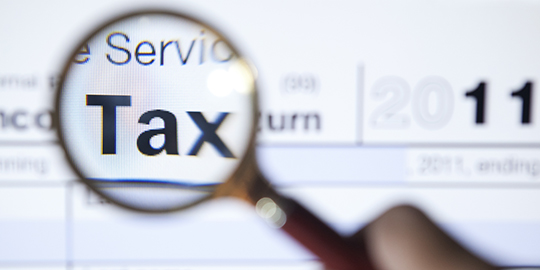
Govt yet to decide tax slab under GST: Revenue Secretary
Sai Nikesh | The Dollar Business
The Central government is yet to decide tax rate under the proposed Goods and Services Tax (GST), a Finance Ministry official said, adding that the rate will be fixed by the GST Council. “No decision has been taken yet…let me emphatically say…the rate will be decided by the GST Council to be chaired by the Finance Minister and comprising state finance ministers..So, whether it is going to be 25-27%, that discussion should end,” said Revenue Secretary Shaktikanta Das at an event of the Associated Chamber of Commerce and Industry (ASSOCHAM) in New Delhi, on Thursday. As per the existing taxation norms, the Central and the State governments levy taxes at different level of transaction of goods across the country. At present, the total tax levied at central and state levels goes up to 27% which is higher than the global average of 17%. Traders say that the cascading tax slabs ultimately increase the product cost and make them uncompetitive in the international market. The Revenue Secretary said that in the hope of getting a perfect GST law, there was no point in delaying the same. “Best should not become enemy of the good,” he said. According to Nilesh Kapadia, Partner, N M K & Co., Chartered Accountants, Trustee of Foundation for International Taxation, 'the rate fixation under GST is a decision which is both economics based, and also driven by politics'. “However, one hopes that the matter is resolved one way or other, so that the GST regime kicks in at the date announced,” he told The Dollar Business. In the wake of the proposal to levy 1% additional tax on manufacturing states, Das said the measure is interim in nature for two-three years and was meant to bring on board all the states. “It was expected that the revenue buoyancy would result from the GST and addition of 1-1.5% to the GDP would also take place,” he said. Experts believe that the additional tax for states developed in manufacturing should be handled carefully. “Unfortunately, once the tax rates go up in India for any reason, they don’t come down. Take the case of education cess, or surcharge on income tax. Hence, the government should tread carefully on the rate increase, albeit temporary, which would become permanent in the long run,” Kapadia said. Experts are of the view that any tax rate above the global average of 17% will not bring any positive results, especially in the export front. The government has constituted a GST Council with representatives from state governments to build a consensus on the uniform tax regime which aims to replace the existing system of indirect taxes like VAT, sales tax, octroi etc.
August 21, 2015 | 5:10pm IST.






 to success.
to success.